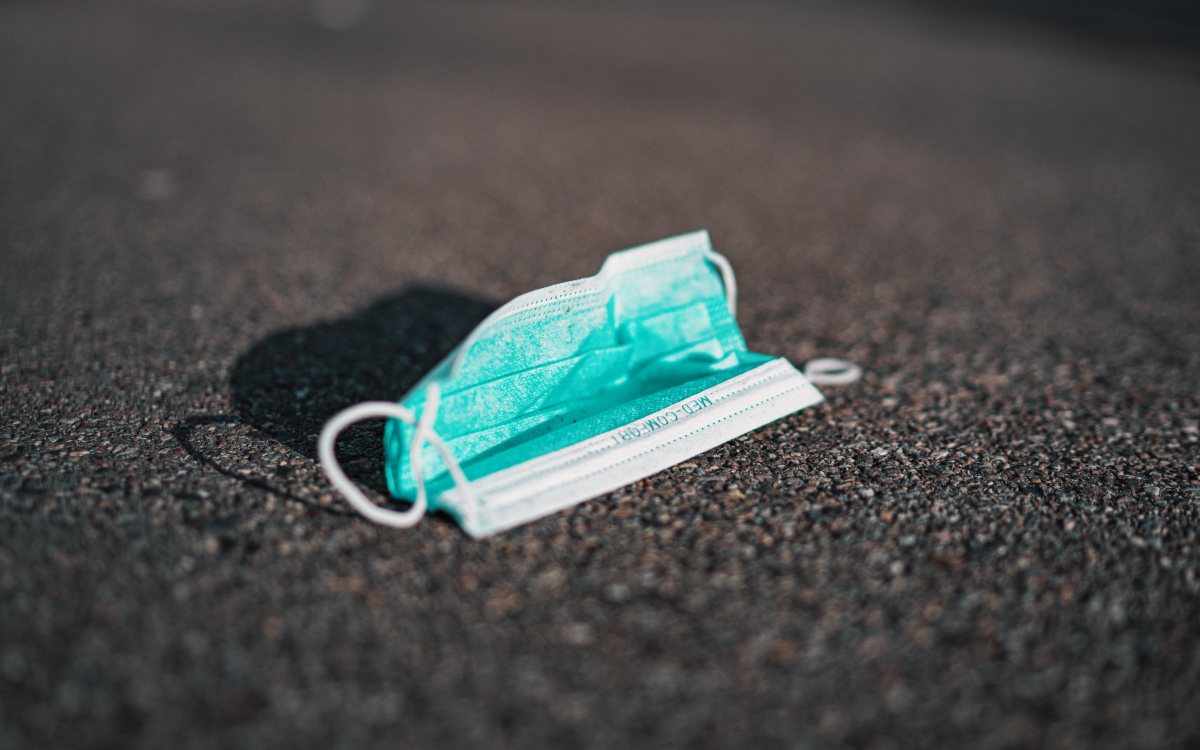The ecological bomb caused by single-use masks

One billion single-use masks each month
Phase 2 of Covid-19 epidemic risks to trigger an ecological bomb
Someone is starting to do math. The use of disposable masks is going on with one billion pieces each month. Individual protection devices that are fundamental in order to live in Covid-19 phase 2 – now and for the months to come.
Disposable masks that, according to the High Institute of Public Health, should be collected in twofold bags and disposed of, together with unsorted waste.
Disposable, like the plastic we were just starting to get rid of – and exactly like plastic, due to lack of manners, education and sense of responsibility, we are beginning to see these devices abandoned along roads, pavements and in supermarkets parking places. Masks and latex gloves have already begun to cause devastating effects on several animal species, as well as on the decorum and neatness of our cities. An issue that has negative consequences even on an industrial level - companies, which for the latest years have been committed to follow standards of certified environmental management, are now compelled to face each day the many bags containing individual protection devices meant for the dump.
Legambiente is worried about the effect of the large use of disposable masks, but it is not alone. Also the Politecnico of Turin is working at what is being considered by many a real ecological bomb. Just to be clear, the virus is not only a serious health issue, not only has it severe economic consequences – it is also an urgent environmental problem. According to WWF, if only 1% of disposable masks ends up in the natural surroundings , it means that there are at least ten millions in the environment. Numbers that speak for themselves and for which a remedy must be found.
As it is, single-use masks are not recyclable and for the moment their final destination is the plants for the disposal of unsorted waste, which are already beyond their capacity. The impact on environment of this burden of waste caused by coronavirus is under survey by Enea. This board of research, which operates on power, environment and new technologies for supporting competitive and sustainable development policies, has been working with several ministries at a plan for the creation of a sustainable supply chain for personal protective equipment.
Besides a more responsible use of the only system that – together with social distancing and given the lack of a vaccine – could reduce contagion, creating a different product has become urgent. Today, the disposable masks on the market are made of several materials and several polymers. So, they are impossible to be dismantled and recycled.
The aim is finding a solution at the soonest, by creating a product fit for circular economy – a single polymer, recyclable materials and supply chain traceability.
The alternative is a doom we thought to have left behind- that of being choked by waste.













